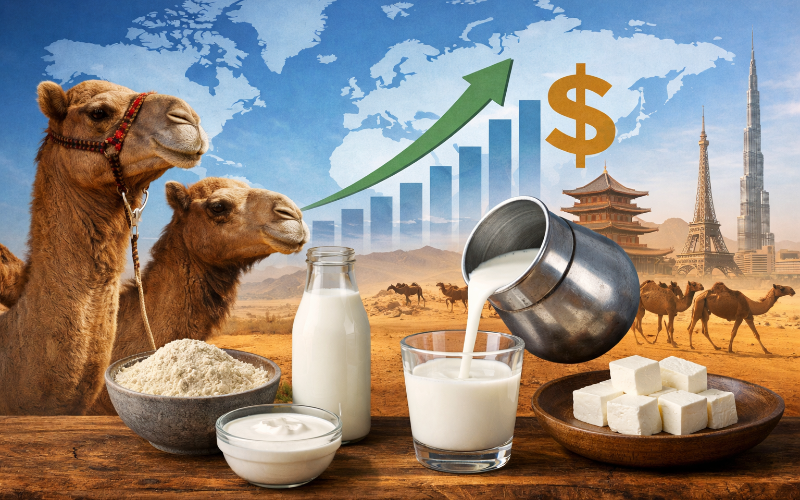Nigeria to Launch New Dairy Policy to Close $1.3bn Import Gap
Source: The DairyNews
The Federal Government of Nigeria has announced plans to introduce a comprehensive Dairy Policy aimed at achieving self-sufficiency in dairy production and reducing the country's heavy reliance on imports.

The policy is set to be unveiled on June 4th, 2024, by Vice President Kashim Shettima during an event commemorating World Milk Day.
This initiative, spearheaded by the Minister of State for Agriculture and Food Security, Sabi Abdullahi, was highlighted during a World Milk Day event in Abuja, focusing on the theme “Harnessing the Nutrition and Investment Opportunities in the Dairy Value Chain”. The theme reflects the critical role of the dairy sector in providing quality nutrition to Nigerians, especially women and children.
The forthcoming Dairy Policy will introduce a range of programs and projects to advance dairy farming techniques, encourage public-private partnerships, and enhance animal health. Furthermore, it aims to bolster investment in dairy processing and preservation, which will extend the shelf life and improve the nutritional content of dairy products.
In addition to boosting the operational climate for businesses, the policy will promote the implementation of evidence-based practices. These include strengthening data collection, enhancing supply chain management, and expanding market access. The policy also aims to foster greater collaboration between private sector entities and government agencies to enhance awareness and coordinate efforts more effectively.
Minister Abdullahi pointed out the urgency of this policy, noting stakeholders’ concerns that Nigeria could only bridge its estimated annual $1.3 billion dairy import gap through substantial government support in infrastructure and cost production reduction.
Expressing his gratitude, Abdullahi thanked President Tinubu for his visionary leadership and acknowledged the crucial support from partners and stakeholders in transforming the dairy value chain. He expressed optimism that these collective efforts would significantly enhance food and nutrition security, improve livelihoods, and contribute to the nation's Renewed Hope Agenda.
This initiative, spearheaded by the Minister of State for Agriculture and Food Security, Sabi Abdullahi, was highlighted during a World Milk Day event in Abuja, focusing on the theme “Harnessing the Nutrition and Investment Opportunities in the Dairy Value Chain”. The theme reflects the critical role of the dairy sector in providing quality nutrition to Nigerians, especially women and children.
The forthcoming Dairy Policy will introduce a range of programs and projects to advance dairy farming techniques, encourage public-private partnerships, and enhance animal health. Furthermore, it aims to bolster investment in dairy processing and preservation, which will extend the shelf life and improve the nutritional content of dairy products.
In addition to boosting the operational climate for businesses, the policy will promote the implementation of evidence-based practices. These include strengthening data collection, enhancing supply chain management, and expanding market access. The policy also aims to foster greater collaboration between private sector entities and government agencies to enhance awareness and coordinate efforts more effectively.
Minister Abdullahi pointed out the urgency of this policy, noting stakeholders’ concerns that Nigeria could only bridge its estimated annual $1.3 billion dairy import gap through substantial government support in infrastructure and cost production reduction.
Expressing his gratitude, Abdullahi thanked President Tinubu for his visionary leadership and acknowledged the crucial support from partners and stakeholders in transforming the dairy value chain. He expressed optimism that these collective efforts would significantly enhance food and nutrition security, improve livelihoods, and contribute to the nation's Renewed Hope Agenda.
Key News of the Week









